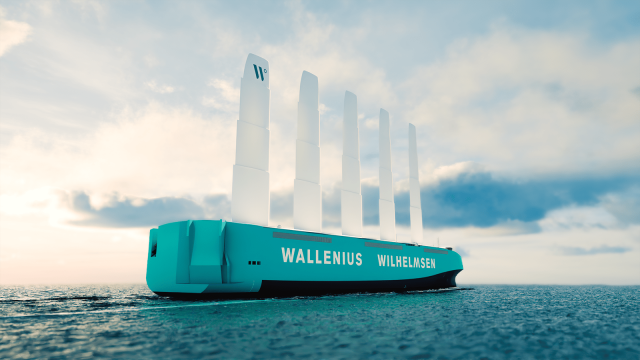The Mediterranean Sea, known for its rich biodiversity and historical and cultural importance, faces numerous environmental challenges due to intensive maritime traffic. Sustainable navigation is presented as a crucial solution to mitigate these negative impacts and preserve this unique ecosystem. In this article, we will analyze in detail the problems associated with shipping in the Mediterranean, the principles of sustainable shipping, international initiatives and regulations, innovative technologies and the role of companies and consumers in protecting this sea.
1. The Impact of Shipping in the Mediterranean
The Mediterranean is one of the busiest shipping routes in the world, with approximately 30% of global maritime traffic passing through its waters. This intense activity has several adverse effects on the environment:
- Atmospheric and Marine Pollution : Ships emit pollutants such as sulfur oxides (SOx), nitrogen oxides (NOx), and fine particles, which contribute to air and water pollution. Additionally, discharges of sewage and other waste can cause eutrophication and harm marine life.
- Underwater Noise : Noise generated by boat engines and other maritime activities interferes with the communication, navigation and behavior of many marine species, especially cetaceans.
- Oil and Chemical Spills : Accidents and routine ship operations can result in spills of oil and other toxic substances, with devastating consequences for marine and coastal ecosystems.
- Invasive Species : Ballast water and ship hulls can transport exotic species to new areas, where they can become invasive, disrupting local ecosystems and threatening native species.
2. Principles of Sustainable Navigation
Sustainable navigation involves adopting practices that minimize environmental impacts and promote the conservation of the marine environment. Some key principles include:
- Energy Efficiency and Emissions Reduction : The implementation of technologies and practices that improve the energy efficiency of ships and reduce emissions of polluting gases, such as the use of cleaner fuels (for example, liquefied natural gas - LNG) and the optimization of navigation routes.
- Responsible Waste Management : Develop and use effective waste management systems to prevent the discharge of pollutants into the sea, including treating wastewater and reducing plastics and other solid waste.
- Biodiversity Protection : Establish and respect exclusion zones and marine protected areas (MPAs) to minimize the impact on critical habitats and vulnerable species.
- Environmental Awareness and Education : Promote education and awareness about the importance of marine conservation among boat operators, tourists and the general public.
3. International Initiatives and Regulations
There are several initiatives and regulations at a global and regional level that seek to promote sustainable navigation and protect the Mediterranean Sea:
- International Maritime Organization (IMO) : The IMO has established numerous regulations to improve the safety and sustainability of maritime transport, such as the MARPOL Convention, which addresses the prevention of pollution from ships, and the Energy Efficiency Standards (EEDI) and waste management.
- Barcelona Convention : This regional agreement, signed by the countries bordering the Mediterranean, aims to reduce pollution and protect the marine and coastal environment through cooperation and the implementation of conservation programs.
- Marine Protected Areas (MPAs) : AMPs are specific areas where management measures are implemented to conserve biodiversity and natural resources. In the Mediterranean, several MPAs have been designated to protect critical habitats and threatened species.
4. Innovative Technologies and Practices
Technological advancement is essential for sustainable navigation. Some of the most innovative technologies and practices include:
- Liquefied Natural Gas (LNG) Engines : These engines emit significantly less pollutants than traditional diesel engines, reducing emissions of SOx, NOx and particles.
- Sails and Wind Energy : The reintroduction of sails on modern ships and the use of offshore wind turbines to generate clean energy can reduce dependence on fossil fuels.
- Ballast Water Treatment Systems : These systems eliminate or neutralize living organisms in ballast water, preventing the spread of invasive species.
- Hybrid and Electric Propulsion : Boats with hybrid or fully electric propulsion systems can operate more quietly and with lower emissions, benefiting both the environment and marine fauna.
5. The Role of Companies and Consumers
Shipping companies and consumers play a crucial role in promoting sustainable shipping:
- Shipping Companies : They can invest in green technologies, improve operational efficiency, comply with environmental regulations and adopt corporate policies that prioritize sustainability. Additionally, they can participate in environmental certification and audit programs.
- Consumers : When choosing products and services, consumers can support companies that demonstrate a commitment to sustainability. Opting for cruise lines and ocean carriers that implement sustainable practices is one way to encourage change.
6. Education and Public Awareness
Education and public awareness are essential to promote sustainable boating. Educational campaigns can inform local communities, boat operators and tourists about the impacts of boating and sustainable practices. Additionally, integrating environmental education into school curricula and promoting scientific research on marine conservation can help develop a culture of long-term sustainability.
The Mediterranean Sea is an invaluable resource that needs to be protected for future generations. The adoption of sustainable boating practices, supported by effective regulations, innovative technologies and growing public awareness, is essential to mitigate the negative impacts of boating. Through international cooperation, business commitment and individual action, we can ensure that the Mediterranean remains a vibrant sea full of life. Sustainability is not just an option, but a necessity for the conservation of our natural heritage and the health of our planet.


